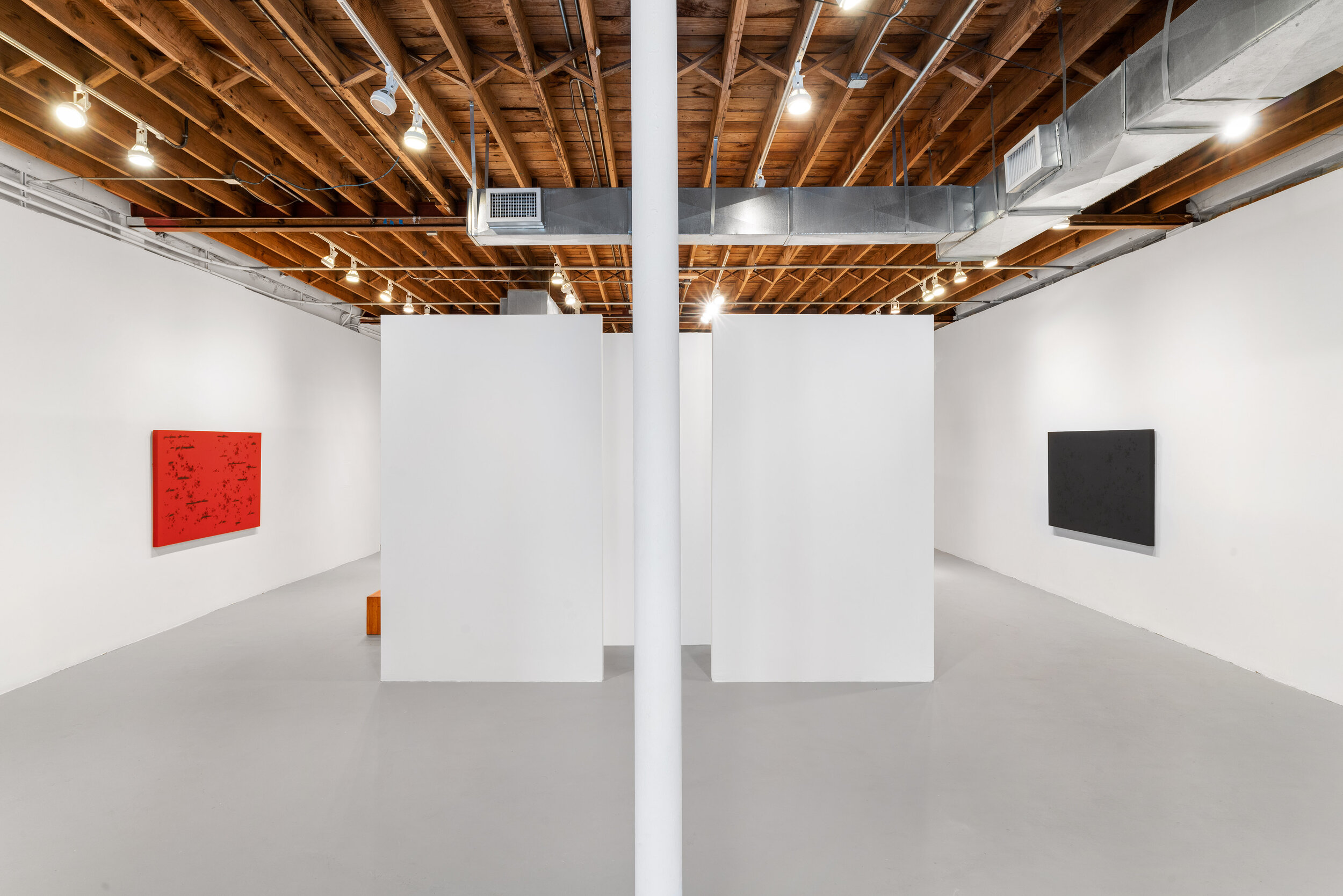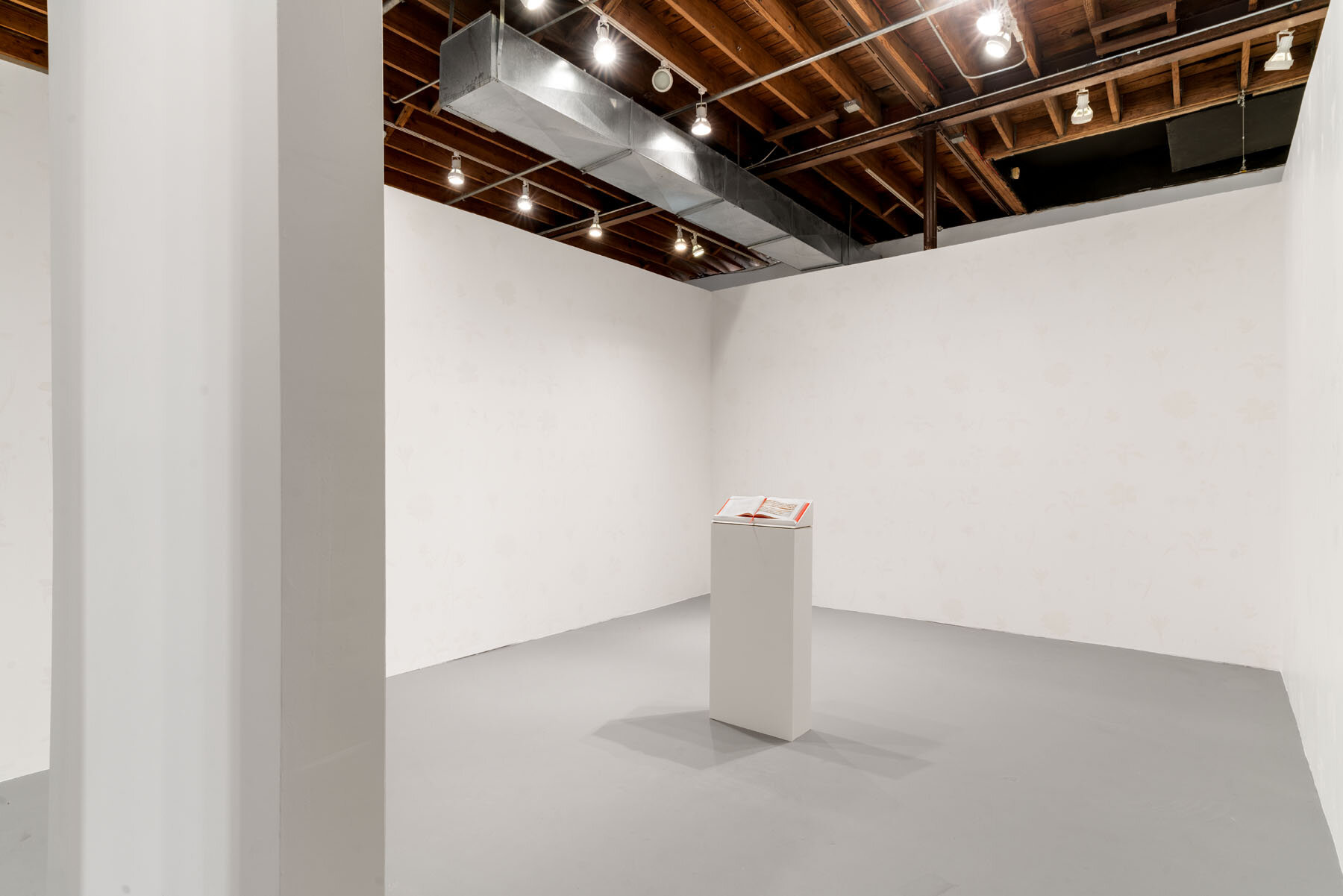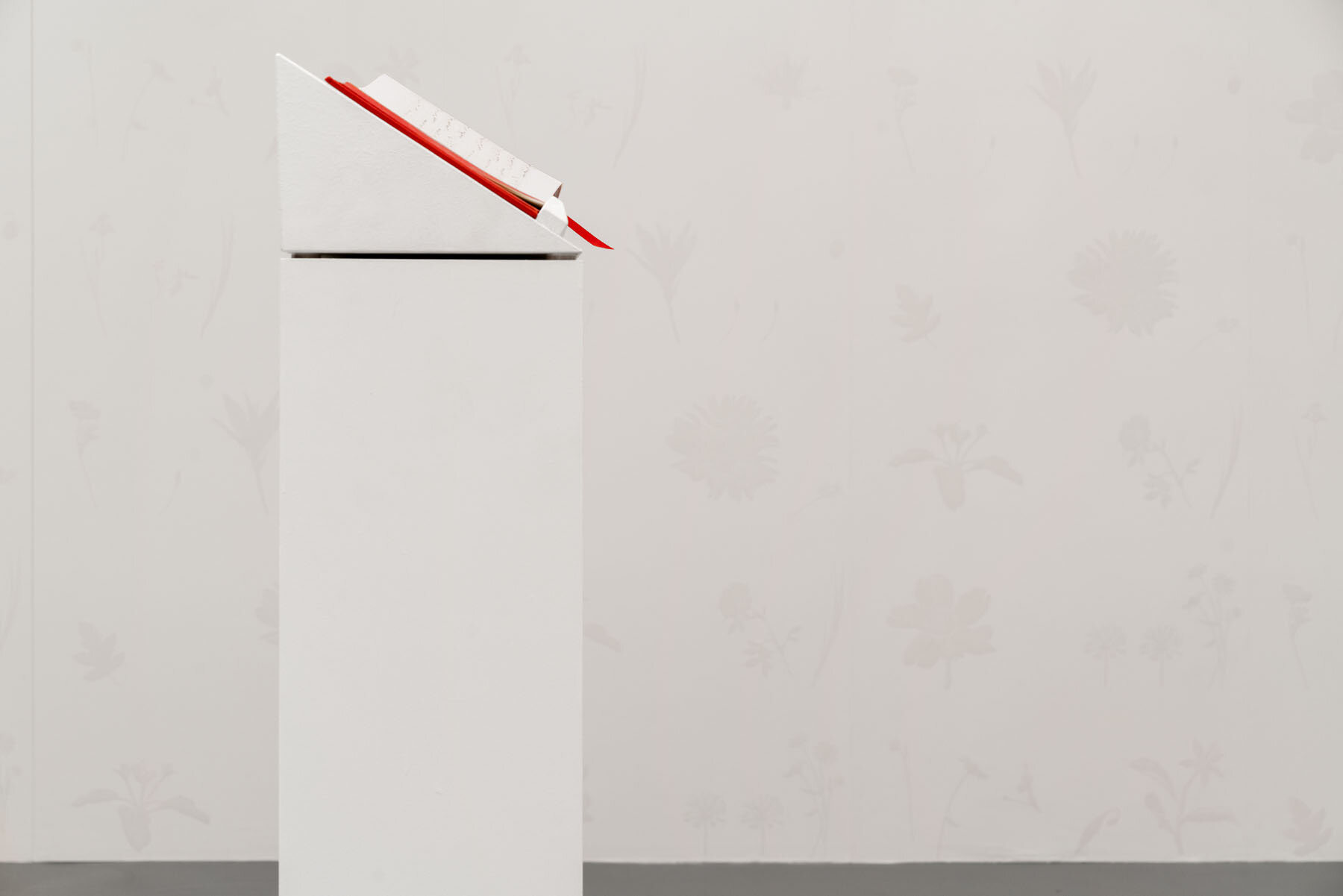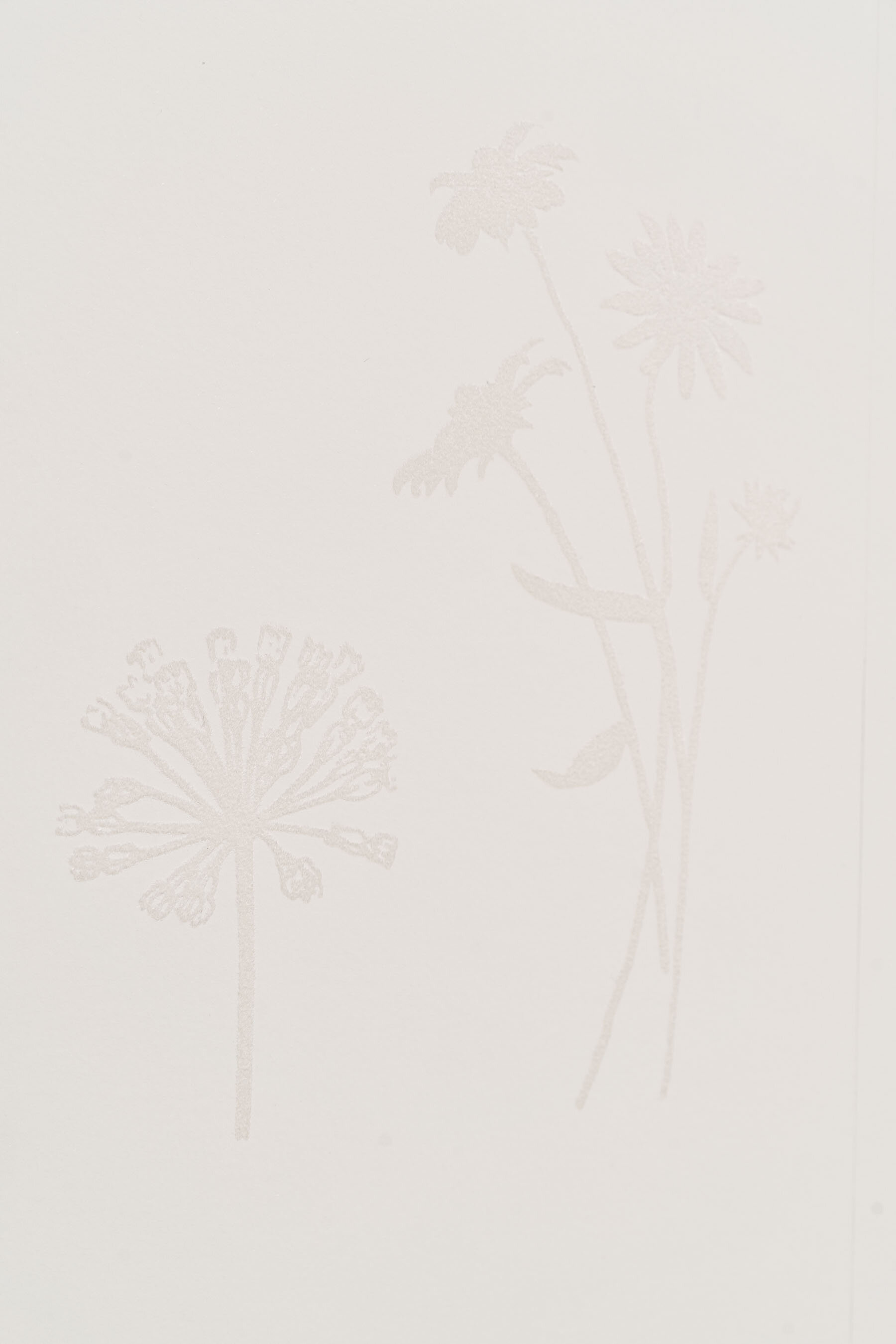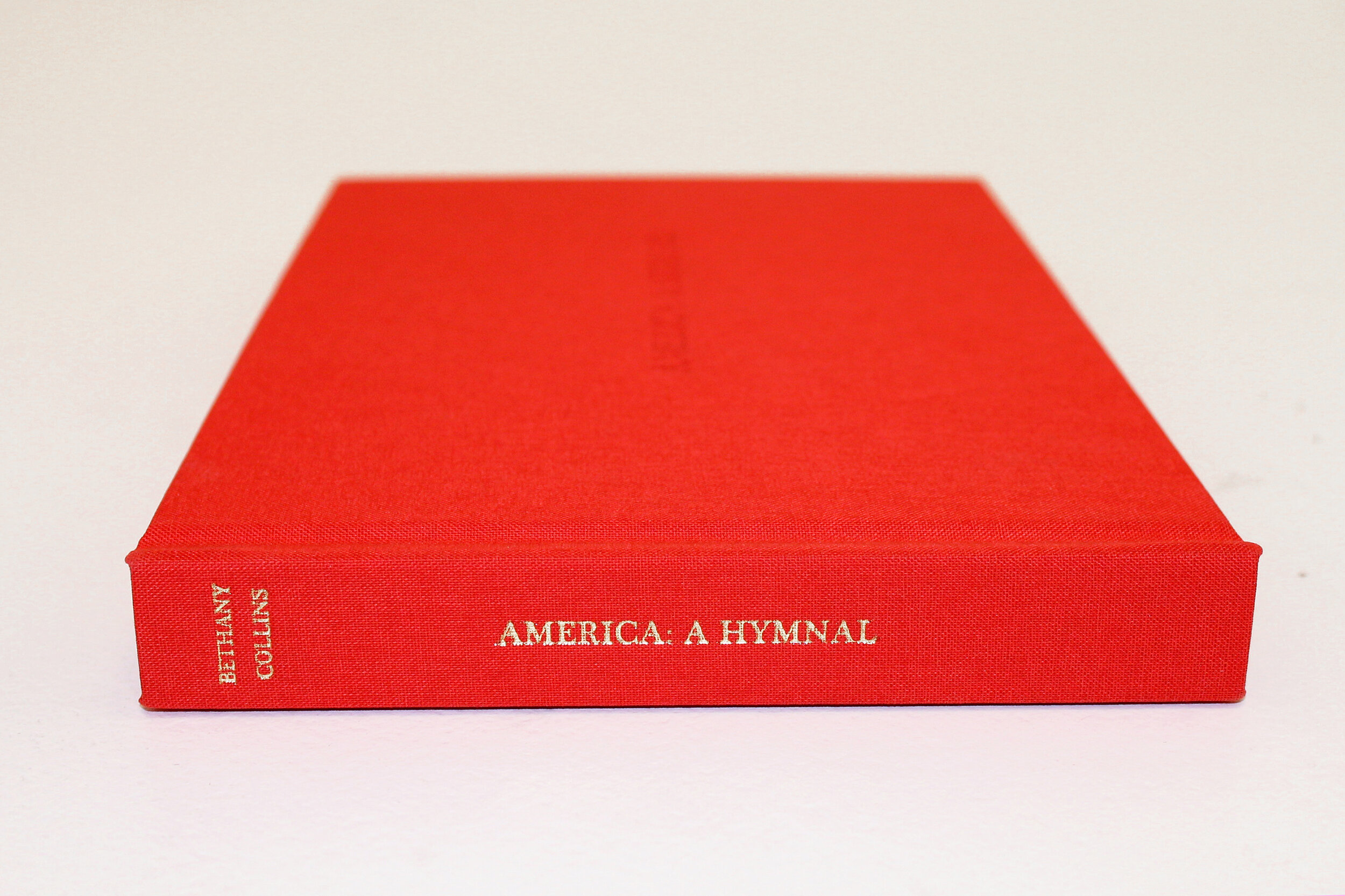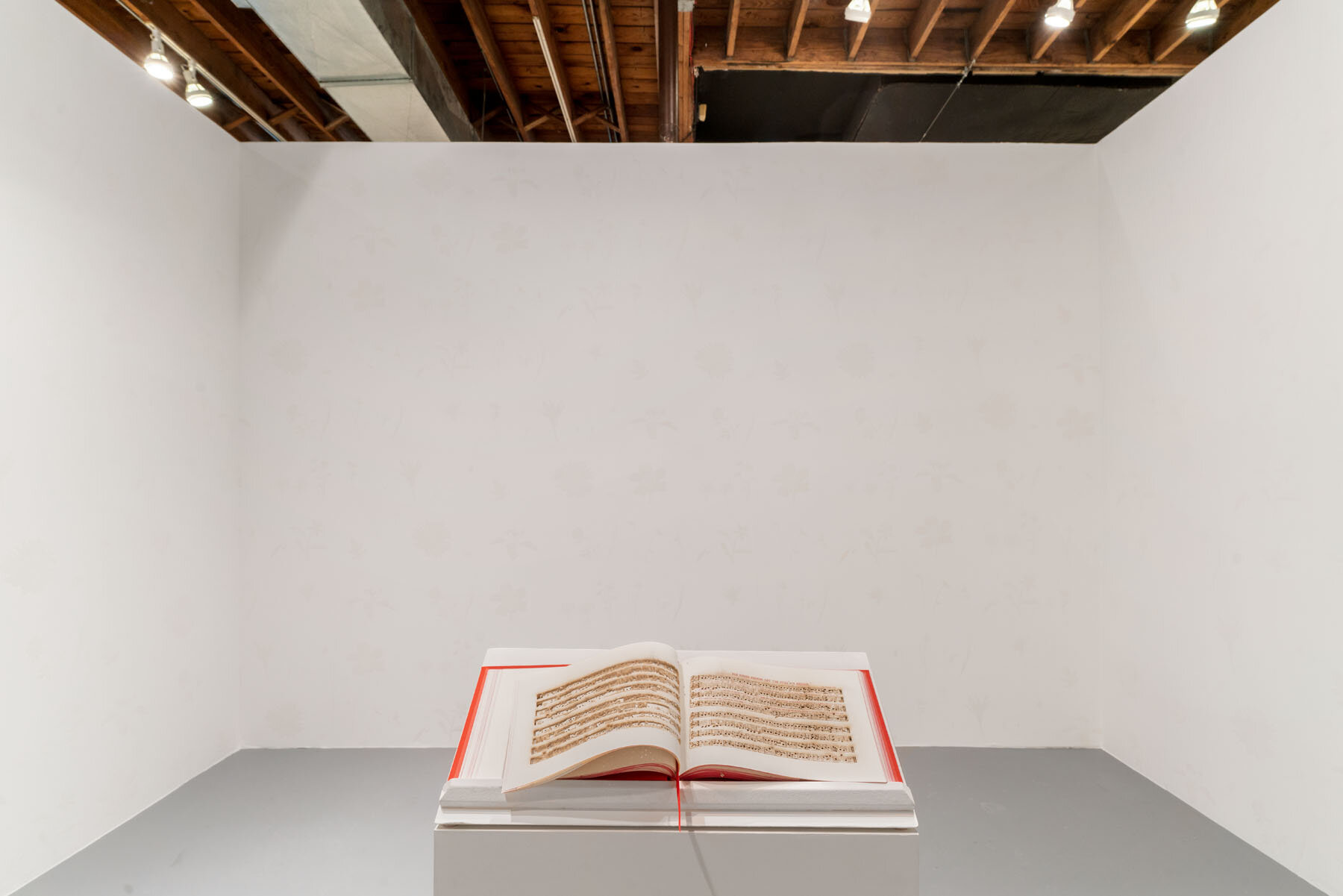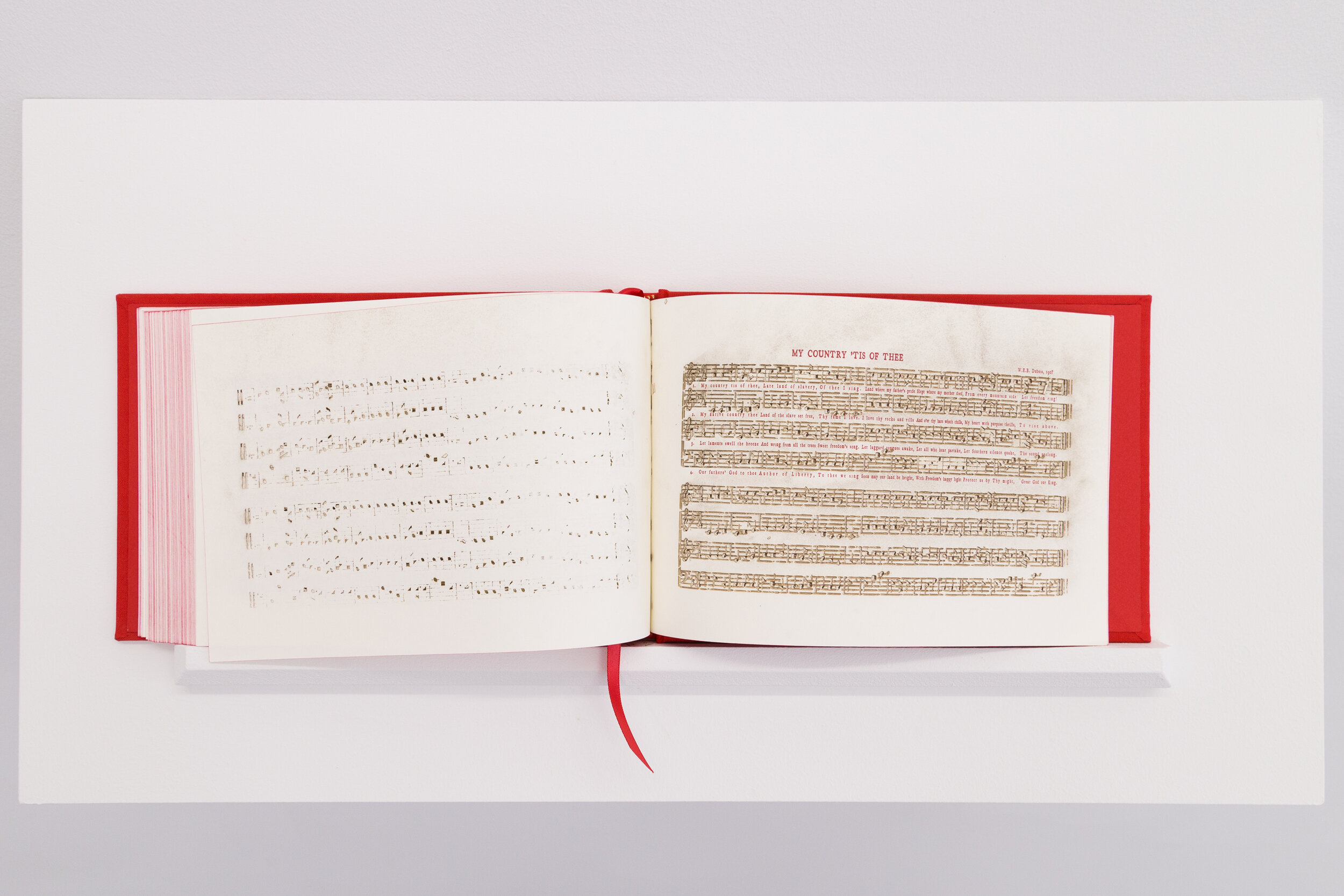Looking Back at Bethany Collins: The Litany
In November 2018, Chicago-based artist Bethany Collins presented her site-specific installation, The Litany commissioned by Locust Projects as part of its 20th Anniversary year. Collins’ installation featured a room-within-the-room in the center of Locust Projects’ Main Gallery and within visitors encountered, My destiny is in your hands, a white-on-white flocked wallpaper installation designed by the artist that exists within the “chapel” custom-built for the exhibition.
The floral designs on the wallpaper represent official state flowers from the historical South where the artist’s family are from, as well as the state flowers where the artist’s family moved to during the Great Migration of millions of African Americans from the South to other parts of the United States.In using these specific flower motifs, Collins is referencing floriography, the language of flowers as a means of coded communication. Meaning has been attributed to flowers for thousands of years, but floriography enjoyed a resurgence in popular culture in 19th century, Victorian-era England. According to flower dictionaries published in the 19th century, the meanings behind the flowers represented in the wallpaper include: “I am your captive” for Delaware’s official state flower, the peach blossom; “I burn for you” for Louisiana’s iris; and “My destiny is in your hands” in Alabama’s camellia. The artist brings the coded messages of the language of flowers on the walls together to memorialize moments of repeated violence throughout American history.
In the center of the wallpapered room is a copy of America: A Hymnal, an artist book by Collins published by PATRON and Candor Arts in 2017. The hardcover-bound book consists of 100 versions of the song My Country ‘Tis of Thee by the Rev. Samuel F. Smith. Since the original version’s debut on July 4, 1831, the lyrics of My Country ’Tis of Thee have been re-titled and re-written at least one hundred times between the 18th and 20th centuries. Each re-writing—usually done in support of a passionately held cause, from temperance and suffrage to abolition and even the Confederacy—articulates some version of what it means to be American. Like the coded meanings of state flowers, these patriotic hymns sometimes communicate messages of love, or indictments, or both.
“They’re contradictory and dissenting versions of what it means to be American,” said Ms. Collins, 36, who has burned away the musical notes in the hymnal, leaving just the words legible. — Hilarie M. Sheets, Lost, and Now Found, Art From the Civil Rights Era, New York Times, March 10, 2020
A day-long performance of “America: A Hymnal” debuted at Locust Projects during Miami Art Week, as part of Bethany Collins’ solo exhibition, The Litany. All 100 versions were sung by volunteers and small choirs continuously throughout the day. In its many lyrical variations, “America: A Hymnal” presents a chronological retelling of American history, politics and culture through one song. Visitors came and went quietly throughout the day of the performance. Participating singers include: AK Gomez, Morgan Bryson, Jenna Efrein, Tara Long, Bear, Jenna Balfe, Kali Geiger, Layla Bessito, Tom Blazejack, Michelle Lisa Polissaint, Gabriella Villalobos and the Unitarian Universalist Congregation of Miami Choir.
Watch video documentation from WLRN’s livestream of a portion of the performance below:
In these tumultuous and challenging times many of us are again questioning what it means to be American in a nation so divided. We hope for a time to come when there is a version written of the song of unity and solidarity, one we can all sing together, with one voice.
America: A Hymnal is now part of the exhibition Jacob Lawrence: The American Struggle, at Peabody Essex Museum, which opened on January 2020 —while the museum is closed due to COVID19, a virtual 360° tour is available as are fantastic interviews with the contemporary artists featured within the Lawrence show.
WATCH: Bethany Collins talks more about her exhibition at Locust Projects in the following video filmed for Miami Design District by World Red Eye, also features works on view by Jibade Khalil-Huffman and an interview with Miami-based artist Michael Loveland.
Bethany Collins: The Litany at Locust Projects received additional support from the Foundation for Contemporary Arts Emergency Grant.
About the Artist
Bethany Collins (b. 1984, Montgomery, Alabama, lives and works in Chicago) is a multidisciplinary artist whose conceptually driven work is fueled by a critical exploration of how race and language interact. As Holland Cotter noted in The New York Times, “language itself, viewed as intrinsically racialized, is Bethany Collins’ primary material.” Her works have been exhibited in solo and group exhibitions nationwide, including the Studio Museum in Harlem, The Drawing Center, Wexner Center for the Arts, Museum of Contemporary Art Detroit, Atlanta Contemporary Art Center, and the Birmingham Museum of Art. Collins has been recognized as an Artist-in-Residence at the Studio Museum in Harlem, the MacDowell Colony, the Bemis Center, and the Hyde Park Art Center among others. In 2015, she was awarded the Hudgens Prize. She received her MFA from Georgia State University, and her BA from the University of Alabama.
Locust Projects 2018-2019 exhibitions and programs are made possible with support from: The Andy Warhol Foundation for the Visual Arts; The John S. and James L. Knight Foundation; the Miami-Dade County Department of Cultural Affairs and the Cultural Affairs Council, the Miami-Dade County Mayor and Board of County Commissioners; The National Endowment for the Arts Art Works Grant; the Hillsdale Fund; the Miami Sports and Exhibition Authority; The State of Florida, Department of State, Division of Cultural Affairs and the Florida Council on Arts and Culture; The Kirk Foundation; Vhernier; the Team LAB Annual Education Fund; Locust Projects Exhibitionist and Significant Others Members.

